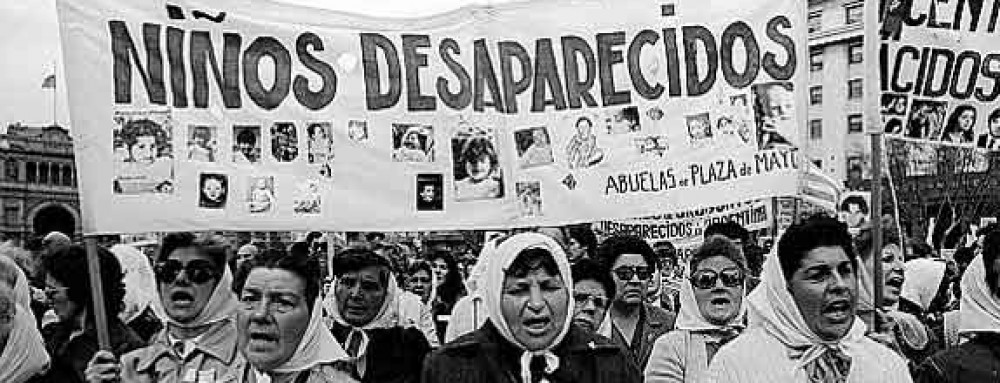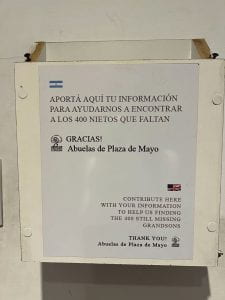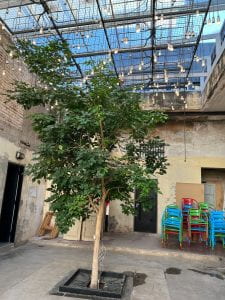The Abuelas de Plaza de Mayo have worked tirelessly since the late 1970s to reunite families torn apart by the Dirty War, focusing specifically on the children of pregnant women who were imprisoned and later executed. After they were born, many of those children were taken and given to families associated with the military regime.
These extraordinary women have embarked on a tireless quest to find their missing grandchildren and to restore their identities. They have endured severe personal risk and fought against a culture of silence that sought to bury the crimes committed during the dictatorship. As Fernando told us, “worse than not wanting to know is wanting not to know.” The women actively fight against this sentiment. This active preservation of memory is a fight that can and should be applied to the U.S. We have much to learn from such organizations that continuously fight for justice, memory, and truth, especially as we reckon with the many human rights violations happened and continue to happen in our home country.
The abuelas organized protests, held marches and vigils in the Plaza de Mayo, and fiercely advocated for human rights here in Argentina. They gathered and meticulously documented evidence, utilizing DNA testing and collaborating with international organizations to identify and locate the stolen children. They continue to do so today.
At the D2 detention center, there is a courtyard with a tree in the center. Above the tree is a grid, from it hang down extension cords. Some of the cords hold lightbulbs and many do not. We learned that this display is a visual representation of the Abuelas de Plaza de Mayo’s search for the taken children. Every child that has been found is marked by a bright lightbulb. The rest who have yet to be found have empty cords.
Somewhere in the former detention center lies a collection of lightbulbs waiting to be plugged in to a cord; somewhere in the world are the taken children, now grown up, who have yet to be found by the abuelas.




This was beautifully written! The abuelas and their fight to find their lost grandchildren, as well as the many who had been found, stuck out to me as well. The lights to me represented hope that even the not yet lit bulbs will one day glow too.
I can’t image the pain and confusion that a found grandchild must endure. Although they welcome the love and joy of their new family, they have to be so sad that they have spent most of their lives loving people that tortured and killed their parents. It is hard to get your mind around the dual nature of the people with whom they have been living.